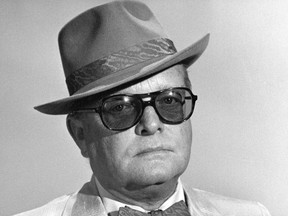Education
Rediscovering Reading: A Journey Back to the Page

In an age dominated by digital distractions, many are reflecting on the value of reading. Pete McMartin, a seasoned journalist, recently recounted his personal journey from a passionate reader to someone who allowed technology to overshadow the written word. His story highlights a broader decline in reading habits and the impact of modern distractions on literacy.
From Literary Enthusiast to Digital Distraction
As a teenager, McMartin immersed himself in the works of literary giants like Hemingway, Faulkner, and Tolstoy. He vividly recalls the sensory experience of reading— the musty smell of books and the tactile pleasure of turning pages. Despite engaging with complex texts, he acknowledges that much of the content eluded his understanding at the time. Nevertheless, these early experiences shaped his writing and thinking.
Upon joining The Vancouver Sun, McMartin encountered a new wave of authors, primarily in non-fiction, including John McPhee and Christopher Hitchens. This exposure further fueled his passion for literature.
A pivotal moment occurred on April 11, 1977, when reporter Doug Sagi submitted the last typewritten news story for the publication. The piece marked the end of an era, coinciding with the death of columnist Jack Wasserman. In an effort to adapt, the newsroom transitioned to computers, introducing games to familiarize staff with the new technology. McMartin found himself captivated by the simplicity of games like Mahjong, leading to a shift in focus from reading to digital distractions.
Confronting the Decline in Reading
As technology advanced, McMartin noticed a gradual decline in his reading habits. The rise of emails, social media, and streaming services created an environment ripe for distraction. Surveys indicate that reading among children has diminished significantly, with 46 percent of Americans in 2023 admitting they had not finished a single book that year. The trend particularly affects men, who are reading less fiction, possibly due to the increasing number of female authors dominating bookstore shelves.
Reflecting on his own habits, McMartin found himself spending excessive time on entertainment apps, even resorting to playing solitaire in the bathroom. This self-admitted addiction left him feeling guilty, especially when he examined the untouched books on his shelves.
A moment of reckoning came when he discovered a book gifted to him by a close friend: The Grass Harp by Truman Capote. The inscription, “Your brother,” served as a reminder of lost time and unfulfilled potential. Standing in front of his collection, McMartin felt a deep sense of regret for prioritizing screen time over the literary treasures that once captivated him.
Ultimately, he took the crucial step of opening the book, turning to page one, and beginning to read once more. This act symbolizes a broader call to reconnect with literature and the introspective journey it offers.
As society grapples with the implications of technology on literacy, McMartin’s experience serves as a poignant reminder of the power of reading. In a world filled with distractions, the act of picking up a book can lead to profound personal transformation and rekindle a lifelong passion for literature.
-

 Education2 months ago
Education2 months agoBrandon University’s Failed $5 Million Project Sparks Oversight Review
-

 Lifestyle3 months ago
Lifestyle3 months agoWinnipeg Celebrates Culinary Creativity During Le Burger Week 2025
-

 Science3 months ago
Science3 months agoMicrosoft Confirms U.S. Law Overrules Canadian Data Sovereignty
-

 Health3 months ago
Health3 months agoMontreal’s Groupe Marcelle Leads Canadian Cosmetic Industry Growth
-

 Science3 months ago
Science3 months agoTech Innovator Amandipp Singh Transforms Hiring for Disabled
-

 Technology3 months ago
Technology3 months agoDragon Ball: Sparking! Zero Launching on Switch and Switch 2 This November
-

 Education3 months ago
Education3 months agoRed River College Launches New Programs to Address Industry Needs
-

 Technology3 months ago
Technology3 months agoGoogle Pixel 10 Pro Fold Specs Unveiled Ahead of Launch
-

 Technology1 month ago
Technology1 month agoDiscord Faces Serious Security Breach Affecting Millions
-

 Business2 months ago
Business2 months agoRocket Lab Reports Strong Q2 2025 Revenue Growth and Future Plans
-

 Science3 months ago
Science3 months agoChina’s Wukong Spacesuit Sets New Standard for AI in Space
-

 Education3 months ago
Education3 months agoAlberta Teachers’ Strike: Potential Impacts on Students and Families
-

 Technology3 months ago
Technology3 months agoWorld of Warcraft Players Buzz Over 19-Quest Bee Challenge
-

 Business3 months ago
Business3 months agoNew Estimates Reveal ChatGPT-5 Energy Use Could Soar
-

 Education3 months ago
Education3 months agoNew SĆIȺNEW̱ SṮEȽIṮḴEȽ Elementary Opens in Langford for 2025/2026 Year
-

 Business3 months ago
Business3 months agoDawson City Residents Rally Around Buy Canadian Movement
-

 Technology1 month ago
Technology1 month agoHuawei MatePad 12X Redefines Tablet Experience for Professionals
-

 Technology3 months ago
Technology3 months agoFuture Entertainment Launches DDoD with Gameplay Trailer Showcase
-

 Business3 months ago
Business3 months agoBNA Brewing to Open New Bowling Alley in Downtown Penticton
-

 Technology3 months ago
Technology3 months agoGlobal Launch of Ragnarok M: Classic Set for September 3, 2025
-

 Technology3 months ago
Technology3 months agoInnovative 140W GaN Travel Adapter Combines Power and Convenience
-

 Science3 months ago
Science3 months agoXi Labs Innovates with New AI Operating System Set for 2025 Launch
-

 Technology3 months ago
Technology3 months agoNew IDR01 Smart Ring Offers Advanced Sports Tracking for $169
-

 Technology3 months ago
Technology3 months agoDiscover the Relaxing Charm of Tiny Bookshop: A Cozy Gaming Escape










